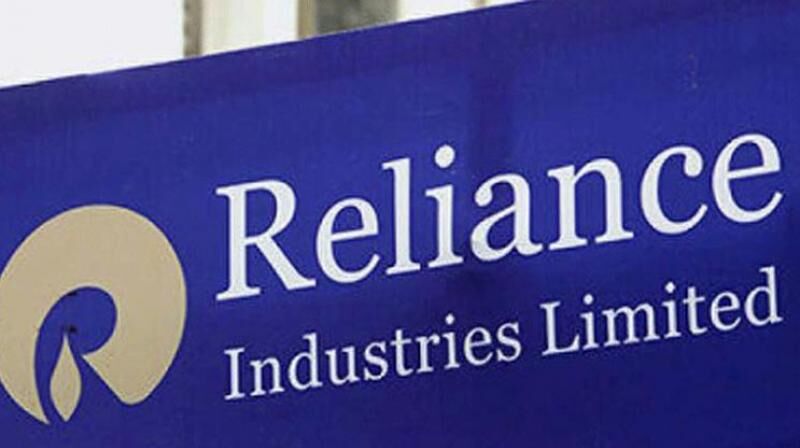RIL, Hyundai and M&M among 10 cos to bid under Rs 18,100 cr scheme

New Delhi: RIL subsidiary Reliance New Energy Solar, Hyundai Global Motors, Ola Electric, Mahindra & Mahindra and Larsen & Toubro are among the 10 firms that have submitted bids under the Rs 18,100 crore production linked incentive (PLI) scheme for Advanced Chemistry Cell (ACC) battery storage, the government said on Saturday.
A total of 10 bids with capacity of 130 Gwh — over twice the manufacturing capacity to be awarded -- were received.
Amara Raja Batteries, Exide Industries, Rajesh Exports, India Power Corporation and Lucas-TVS have also submitted bids. "Industry has reposed its faith in India's stellar progress as a world class manufacturing destination which resonates strongly with Prime Minister's clarion call of Atma Nirbhar Bharat - a self-reliant India," an official statement said.
The government approved the PLI scheme 'National Programme on Advanced Chemistry Cell (ACC) Battery Storage' for achieving manufacturing capacity of 50 Giga Watt Hour (GWh) for enhancing India's manufacturing capabilities with a budgetary outlay of Rs 18,100 crore. Under the scheme, the manufacturing facility would have to be set up within a period of two years. The incentive will be disbursed thereafter over a period of five years on sale of batteries manufactured in India.
"The scheme received an encouraging response from local as well as global investors as bids received is 2.6 times the manufacturing capacity to be awarded i.e. 50 Gwh," the heavy industries ministry stated.
The technical bids received for the scheme were opened on Saturday. According to the government, the incentive structure would encourage industry to promote fresh investments in indigenous supply chain/ deep localisation for battery manufacturing in the country.
The ACC PLI scheme is expected to result in savings to the nation on account of reduction in import of crude oil to a significant extent and increase the share of renewable energy at the national grid level, the statement said. The scheme for ACC along with PLI scheme for the automotive sector and FAME will enable India to leapfrog to environmentally cleaner, sustainable, advanced and more efficient electric vehicles (EV) based system.
Moreover, the power ministry has unveiled revised norms to support creation of electric vehicle charging infrastructure, with an aim to enable a faster adoption of EVs in the country by ensuring safe, reliable ecosystem.
The revised guidelines include allowing EV owners to charge them at their residence/offices using their existing electricity connections and de-licensing the setting up of EV charging infra.
"The Union Ministry of Power has promulgated the revised consolidated Guidelines & Standards for Charging Infrastructure for Electric Vehicles (EV) on 14th January 2022," a power ministry statement said on Saturday.
"The objective is to enable a faster adoption of electric vehicles in India by ensuring safe, reliable, accessible and affordable charging infrastructure and ecosystem," it added.
Infrastructure requirements for public charging infrastructure as well as for public charging infrastructure for long range EVs and/or heavy duty EVs have been outlined, it stated.
Any individual/entity is free to set up public charging stations without the requirement of a licence provided that, such stations meet the technical, safety as well as performance standards and protocols.
An exhaustive list of compliance requirements for Public Charging Station (PCS) have also been outlined. These include norms for "appropriate" infrastructure for civil, electricity and safety requirements.
The guidelines have been made further technology agnostic by providing for not only the prevailing international charging standards available in the market but also the new Indian charging standards.
In order to address the challenge of making a charging station financially viable in the period of growth of EVs, a revenue sharing model has been put in place for land used for the same.
Land available with the government/public entities shall be provided for installation of PCS to a government/public entity on a revenue sharing basis for installation of PCS at a fixed rate of Re 1/kWh (used for charging) to be paid to the land-owning agency from such PCS business payable on quarterly basis.
A model revenue sharing agreement has also been included under the guidelines.
Such revenue sharing agreement may be initially entered by parties for a period of 10 years. The revenue sharing model may also be adopted by the public land-owning agency for providing the land to a private entity for installation of Public Charging Stations on bidding basis with floor price of Re 1/ kWh.
Timelines have been prescribed as per the Electricity (Rights of Consumers).
Accordingly, PCS shall be provided connection within seven days in metro cities, fifteen days in other municipal areas and thirty days in rural areas. Within these timelines the distribution licensees shall provide new connection or modify an existing connection.



